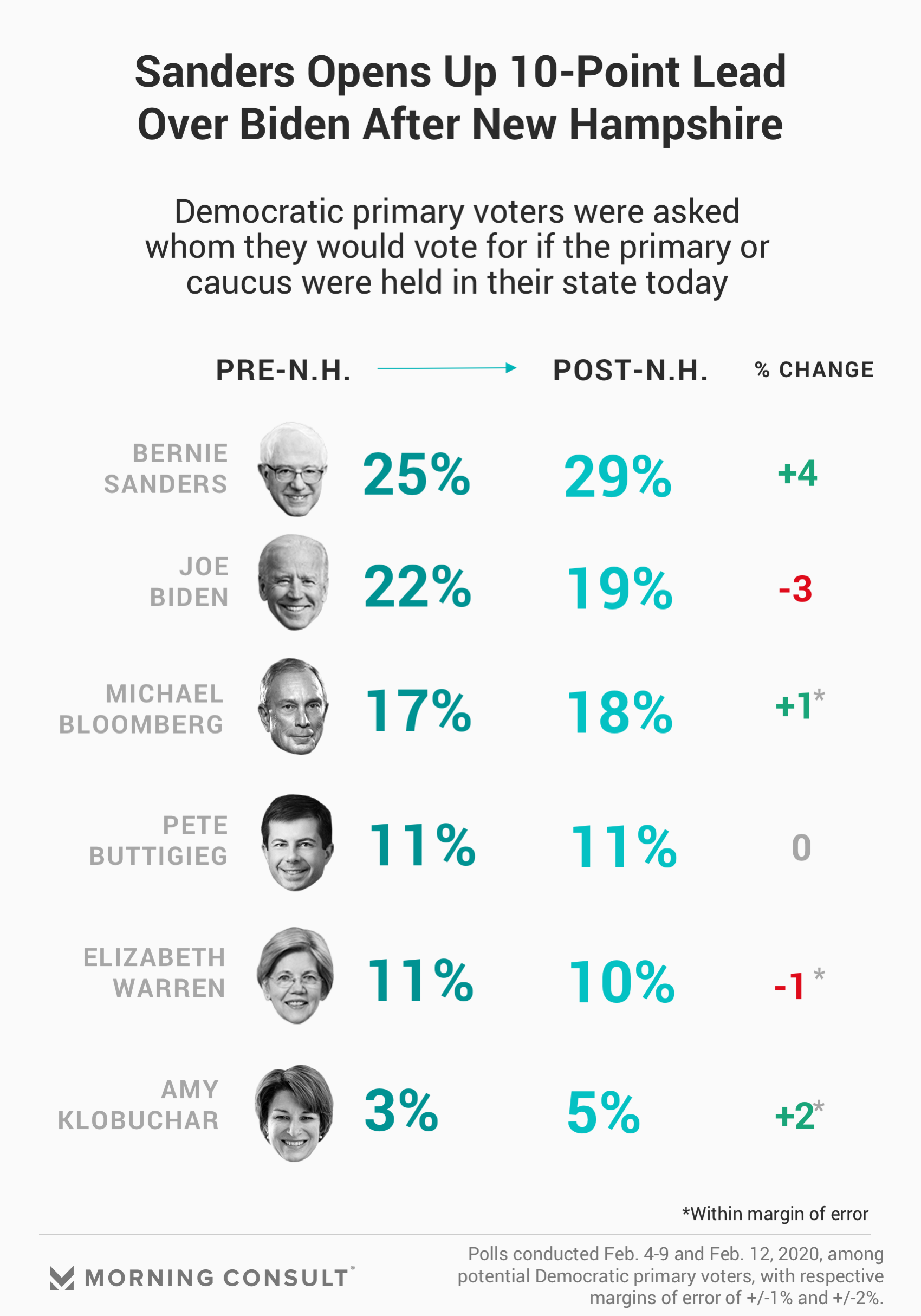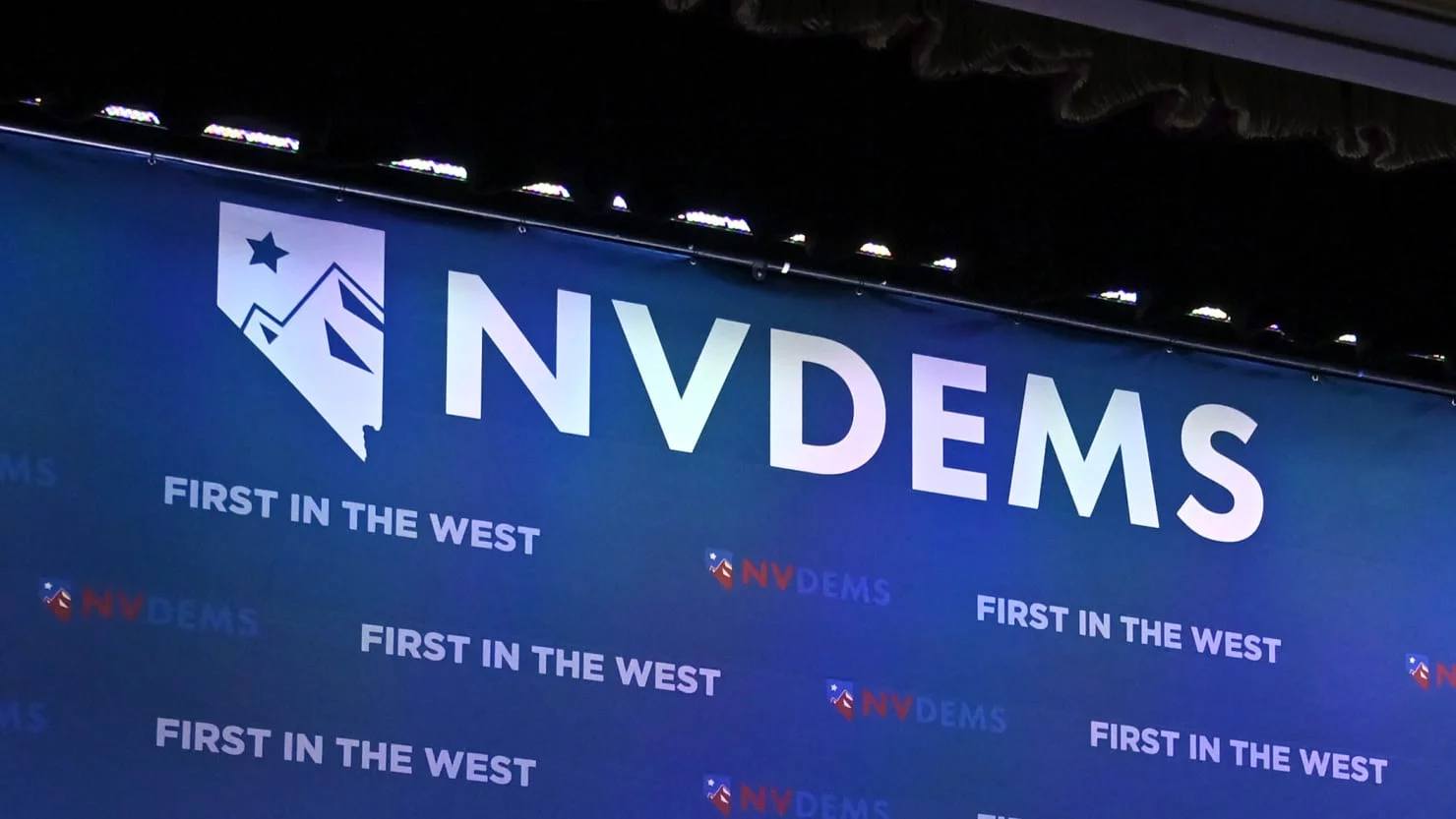The pitfalls of conducting high-profile caucuses to select delegates toward a party’s nomination seem to be stressed in circumstances where turnout is relatively high, candidates are plentiful, and the end results are decided by one or two percentage points or less.
It’s in these instances where tie-breaking rules and delegate selection math comes into play quite heavily and can end up swaying the outcome and adding to the confusion.
As an illustrative example, read this section from the rule book (PDF) produced by the Nevada Democratic Party for breaking a tie between two candidates over awarded delegates:
If there are two or more groups that have the same lowest or highest decimal as a result of the caucus math, a game of chance will decide which group(s) lose or gain the delegate(s).
In these very limited circumstances where two or more presidential preference groups are tied for the loss or gain of a delegate, groups must each draw a single card from a deck of cards to break the tie. The high card determines the winner, and aces are high. Tiebreaker scenarios should always be determined after the completion of caucus math. Tiebreakers are determined by referring to the decimal, not the number of individuals in any given preference group.
The basic gist is that if the math of rounding numbers fails, then just determine the winner by a game of chance. This is Nevada, so, naturally, the game of chance is drawing playing cards from a deck to determine the winner if candidates are tied in a precinct.
The rules then go on to explain that the Nevada Democratic Party will provide an unopened deck of playing cards to each caucus location. The cards must then be shuffled by a precinct chair or site lead at least seven times. Not six, not eight, but seven. With rules similar to War or Crazy Eights, the jokers and instructions must be cast aside. What could go wrong?
The rules then go on to state that the Nevada Democratic Party has been using the tie-breaking card drawing rules since 2008 in the interests of fair and transparent elections. The chairman of the Iowa Democratic Party was forced to resign following his state’s botched caucuses. Will the Nevada Democratic Party fare better? We’re all hoping so.
It’s with this backdrop that the remaining Democratic candidates head to the Silver State for the western leg of the early voting states on the 2020 primary calendar.
According to John Ralston of the Nevada Independent, Bernie Sanders is sitting in a good position for this caucus next Saturday and is running a much tighter operation this time compared to 2016, when he lost to Hillary Clinton in the state by less than four points:
There has been no recent polling, but I don’t think it would be relevant anyhow. Most smart people I talk to believe Bernie Sanders is the favorite here, and I think so, too. He almost beat Hillary here in 2016, a core of his followers are Make Bernie Great Again and will go nowhere, and this time he has adults running his effort, not the ragtag crew of four years ago. He also has polled well with Latinos, which is important here.
Ralston continued pointing out that Buttigieg shouldn’t be underestimated, and that Tom Steyer is literally plastering the state with advertising as far as the eye can see. Joe Biden hadn’t spent too much effort there but has been redeploying resources since his New Hampshire shellacking. Amy Klobuchar is now spending some money there, too, but doesn’t appear to be a threat. Elizabeth Warren, once much stronger in the state, has started to fade from contention.
The Nevada race seems to be a two-man battle between Bernie Sanders and Pete Buttigieg, with the remaining spots wide open.
Polling of the state has been sparse, although it’s likely that sometime today or this weekend some new numbers will drop and likely cement the idea that Sanders is the front runner, with a shuffling of the number two and three spots to give Buttigieg a lift.
As for Biden, Nevada and South Carolina have both become a hail marry to start getting some points on the board, but the lift is heavy:
Joe Biden’s campaign is redeploying significant resources this week to Nevada and South Carolina, placing a heavier concentration in the states as the former vice president tries to regain his footing in the 2020 race following a pair of disappointing finishes in the first two early nominating contests, CNN has learned.
A Biden campaign official tells CNN the campaign will redeploy nearly 50 additional staffers to Nevada and South Carolina by this weekend, with some of those staffers being sent from their operations in Super Tuesday states.
The redeployment will bring the total number of staff on the ground in Nevada to more than 130 and more than 60 in South Carolina.
The campaign official said there is a plan to quickly get those staffers back to Super Tuesday states when those nominating contests are complete.
If Biden had won either Iowa or New Hampshire, Nevada would be less important. However, having placed fourth in Iowa, then fifth in New Hampshire, every single state is now part of the narrative. If Biden finishes fourth or fifth again in Nevada, his momentum heading to South Carolina will be running in the negative.
Speeches from Biden about how most of the country hasn’t voted yet, while true, won’t do much to erase the early losses. Biden himself commented that he’d like to win second or third, which means his team is resigned to the likelihood that he cannot win the state.
For what it’s worth, the Las Vegas Weekly put out an endorsement of Joe Biden and Amy Klobuchar, but it may be too little, too late for the former vice president:
Democrats see an urgent need to defeat Donald Trump and save our nation from an autocrat.
We agree, which is why we’re endorsing Sen. Amy Klobuchar and former Vice President Joe Biden in the upcoming Nevada caucuses.
We’re confident each of these candidates can beat the divisive and destructive incumbent in November, which is why we’re making a rare two-candidate endorsement.
The Weekly praises Klobuchar as she impressed them during an interview. On the contrary, the Biden endorsement seems to be a default choice, as they point to his political accomplishments and ability to build a “broad coalition” to win in November.
Morning Consult is reporting that Bernie Sanders has opened up a 1o-point national lead, though they don’t offer any Nevada-specific polling:

If a similar trend is happening in Nevada, which appears to be the case with Sanders and Buttigieg rising as Biden falls, then Bernie’s in a good spot to win another state before we hit the South Carolina showdown in two weeks.
The Nevada Democratic Caucuses take place on Saturday, Feb. 22. The South Carolina Democratic Primary is set for Saturday, Feb. 29. See the full primary schedule for all the details.
Donate Now to Support Election Central
- Help defend independent journalism
- Directly support this website and our efforts
